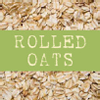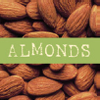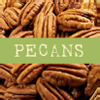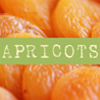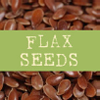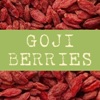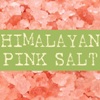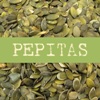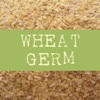Fun & Health Facts
Apricots
Believe It Or Not...
Apricot seeds have a very high content of the bitter Vitamin B-17 which is believed to be a natural cancer fighter.
Rich In:
Vitamin A&B, Carotenes, Iron, and Antioxidants
Studies suggest they are good for:
The eyes, the heart, and fighting anemia; Apricots are high in Carotenoids, an antioxidant that protects the cells of the body from free radicals which are associated with cancer and the effects of aging.
Tip:
Give a Middle Eastern flavor to chicken stew with the addition of dried apricots.
History Flashback:
Apricots were introduced to America by Spanish explorers who planted trees in the gardens of Spanish missions throughout California.
Dates
Believe It Or Not...
Dates increase libido. Soak a fistful of dates in goat’s milk the night before. The next morning mash the dates in the milk, add some honey and cardamom, drink some and then…
Rich In:
Fiber, Vitamin B , Protein, Tannins, Phosphorous, Iron and Magnesium
Studies suggest they are good for:
The digestive system, intestinal disorders, fighting anemia. Dates are high on calories and an excellent source of energy.
Tip:
After a night of “one too many,” eat some dates. They are very good for alcoholic inebriation.
History Flashback:
An old Arabic legend tells of the Date Palm's creation: "After God had finished molding Man from Earth he took the remaining material and shaped it into a date palm which he placed in the Garden of Paradise”.
Figs
Believe It Or Not...
Although considered a fruit, the fig is actually a flower that is inverted into itself; the seeds are the fruit.
Rich In:
Fiber, Potassium, Vitamin A,B & C, Antioxidants, Calcium, Copper, Iron, Phosphorus, Magnesium
Studies suggest they are good for:
Constipation, asthma, impotence, macular degeneration and hypertension. Potassium restrains the effects of sodium, helping to lower blood pressure.
Tip:
Add quartered dried figs to a salad of fennel, arugula and shaved parmesan cheese. It is darn good!
History Flashback:
It is suggested that a fig tree provided the first clothing, as noted in the Bible, “...the eyes of
both of them were opened, and they knew that they were naked; and they sewed fig leaves
together, and made themselves aprons”.
Rolled Oats
Believe It Or Not...
Samuel Johnson's 1755 English dictionary defined oats as “A grain, which in England is generally given to horses, but in Scotland appears to support the people.” The Scotsman’s retort to this was, “That’s why England has such good horses, and Scotland has such fine men!”
Rich In:
Fiber, Protein, Beta-Glucans, and Omega-3 fatty acids
Studies suggest they are good for:
Reducing cholesterol and blood pressure, weight control, and are an excellent source of energy. Early introduction of oats in children's diets may help reduce their risk of asthma and obesity.
History Flashback:
The modern oat draws its ancestry from the wild red oat, a plant originating in Asia.
Almonds
Believe It Or Not...
You should not eat too many almonds; they can cause your breasts to grow.
Rich In:
Vitamin B&E, Calcium, Phosphorous, Iron, Magnesium, and Healthy Fats.
Studies suggest they are good for:
The heart, the brain, the skin, and respiratory disorders; Almonds contain folic acid, which helps to reduce incidences of birth defects in newborn babies.
Tip:
When roasting almonds keep the nuts in a single layer with some space between each nut. The result will surprise you!
History Flashback:
Almonds were a prized ingredient in the breads served to Egyptian pharaohs.
Pecans
Believe It Or Not...
There are over 1,000 varieties of pecans. Many are named for Native American tribes, including Cheyenne, Mohawk and Sioux,.
Rich In:
Vitamins A,B,& E, Antioxidants, Protein, Folic acid, Fiber, Calcium, Phosphorous, Zink, and Magnesium
Studies suggest they are good for:
The brain, the heart, weight control, and reducing cholesterol. Pecans are especially rich in one form of vitamin E called gamma-tocopherol which decreases LDLs (bad cholesterol).
Tip:
For a Pecan-Pesto Pizza recipe (Yes Pizza!) check this recipe:
History Flashback:
The first U.S. pecan planting took place in Long Island, New York in 1772. Presidents Washington and Jefferson loved Pecans too!
Honey
Believe It Or Not...
Out of 20,000 species of bees, only 4 make honey and honeybees never sleep!
Rich In:
Vitamin B Complex, Antioxidants, Niacin, Calcium, Phosphorous, Iron, and Riboflavin
Studies suggest they are good for:
Immune system, insomnia, coughs, and weight loss; it is also an excellent energy booster. It contains 22 amino acids and a variety of minerals essential for fat and cholesterol metabolism.
Tip:
If honey crystallizes, it is absolutely fine. Remove lid and place jar in warm water until the crystals melt - do not boil honey.
History Flashback:
Legend has it that Cupid (the god of desire affection and erotic love) dipped his love arrows in honey before aiming at unsuspecting lovers.
Flax Seeds
Believe It Or Not...
To get the Lignans (potent antioxidants) that are in two tablespoons of flaxseeds, you need to eat 30 cups of fresh broccoli. The choice is yours. . .
Rich In:
Omega-3 fatty acids, Fiber, and Magnesium
Studies suggest they are good for:
The heart and the bones. Also known to have an anti- inflammatory effect and may reduce cholesterol and blood pressure.
Tip:
In order to obtain maximum benefit, grind the flax seeds.
History Flashback:
Ancient Egyptians used flaxseed for nutritional and medicinal purposes. They also used them to make clothes, fishnets, and other products.
Goji Berry
Believe It Or Not...
Rich In:
Studies suggest they are good for:
Tip:
Himalayan Sea Salt
Believe It Or Not...
Rich In:
Studies suggest they are good for:
Tip:
History Flashback:
Pepitas
Believe It Or Not...
Snacking on just one handful of pepitas, about one ounce, provides a whopping 9 grams of body building protein, along with manganese, magnesium, phosphorous, iron, copper and zinc.
Rich In:
Amino acids, unsaturated fatty acids, and a wealth of minerals such as zinc, calcium, potassium, niacin, and phosphorous. They are high in most of the B vitamins, and vitamins C, D, E, and K. They are rich in beta carotene that can be converted into vitamin A as needed by the body, and also rich in the eye protective carotenoid lutein.
Studies suggest they are good for:
The high zinc content of pepitas adds to their prostate protective virtues. Research studies suggest that pumpkin seed to have DHEA (Di hydro epi-androstenedione) blocking actions. Thus, it cuts the risk of prostate and ovarian cancers. In addition, experimental studies suggest that certain phytochemical compounds in pumpkin seed oil may have a role in prevention of diabetic nephropathy (kidney disease).
Tip:
Pumpkin Seeds Pesto
Ingredients
- 1/2 cup pumpkin seeds shelled, roasted
- 2 tablespoons grated Parmesan
- 2 cloves garlic
- 3/4 cup basil leaves
- 3/4 cup fresh parsley leaves
- 2 tablespoons fresh lemon juice
- 1/2 cups olive oil
- salt to taste
Combine all ingedients in a food processor. Pulse on and off, for about 30-40 seconds, until all the ingredients are combined. The mixture should be more like a course paste than a liquefied sauce.
History Flashback:
Native to the Americas, the pumpkin and its seeds have a rich history in terms of folk medicine. Research shows that they flourished as a remedy all over North America and the Caribbean, where they were used as an oil or in ground form to relieve burn pain by the Navajo, for treating edema, gout, kidney stones, and urinary problems by the Cherokee, as a wound-healer by the Yuma, and as a cure for fevers and diarrheas by Jamaican voodoo witch doctors. In the seventeenth century they were adopted into Chinese medicine where they are still considered to be a symbol of prosperity and health.
More Information:
http://www.care2.com/greenliving/10-health-benefits-of-pumpkin-seeds.html?page=1
Wheat Germ
Believe It Or Not...
Rich In:
Studies suggest they are good for:
Tip:
History Flashback:



